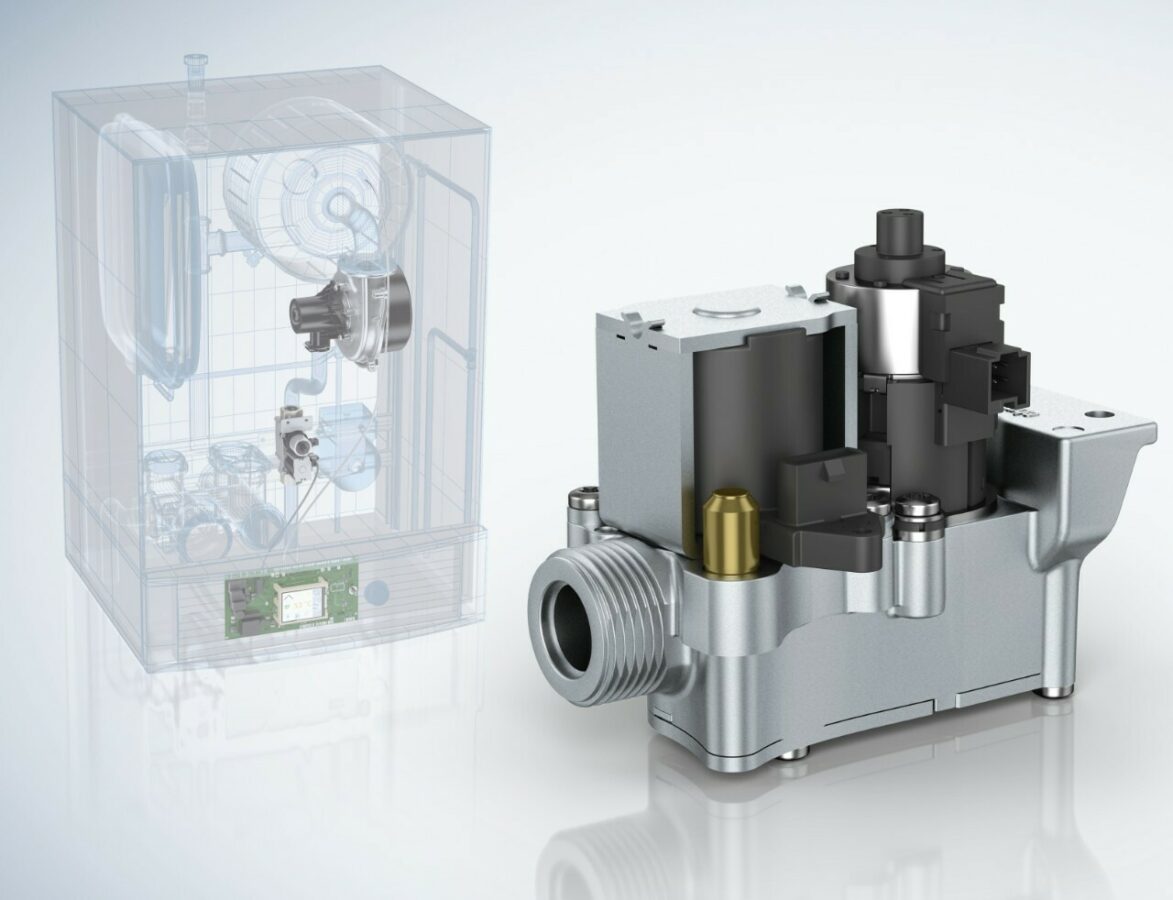
The key element for the perfect combustion mixture
In condensing boilers, the gas valve is a key component for combustion control. It ensures safe, reliable operation and is crucial for providing the optimum combustion mixture. The gas valve range from ebm‑papst offers the ideal solution for both pneumatic and electronic composite systems.
Natural gas is a natural product and has a different calorific value depending on its origin. However, these sources will dry up at some stage and new fuels will come along. Therefore, finely balanced systems are required to set the optimum combustion mixture.
Key role within the network
The gas valve prevents uncontrolled escaping of gas while simultaneously ensuring an optimum air/gas mixture, thereby satisfying a key function in condensing boilers. In practice, electronic combustion control is gaining in importance due to fluctuating gas qualities. Pneumatic combustion control has also been proven as an alternative for many years. ebm‑papst offers both variants as a complete solution under the names CleanEco (pneumatic) and CleanVario (electronic).
CleanEco: Valve types for all requirements
For pneumatic assemblies, the interaction of the valve with blower, venturi and control unit is very important for optimum function. That is why, since 2011, the manufacturer ebm‑papst has included the E01 and D01 gas valves in its product range and has continuously expanded and refined these so that a large power range of 1.5 to 762 kW can now be supplied. The new version of the E01 valve now controls from 1.5 kW and ensures the correct ratio of gas and air fully mechanically.
CleanVario: More flexibility
In an electronic composite system, the mixture ratio is determined by electronic actuation of the gas valve. To actively determine the gas quantity to be supplied, ebm‑papst uses ionization technology which makes use of the electrical conductivity of the flame. The F01 series offers valves suitable for all power classes from 1.8 to 762 kW. With CleanVario, manufacturers don’t have to worry as much about different gas types and qualities. Combustion always runs optimally, efficiently and is environmentally friendly and will in future be suitable for the addition of up to 20 percent hydrogen. Certification for this is in progress.







